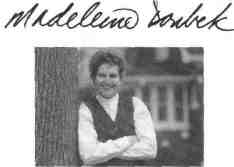
A new governor and a new secretary of state are preparing to take control of much of the state's work- force. And take control they will. They may be fresh to their offices, but there is every indication they'll move to hire loyalists, and we'll have business-as- usual for the next four years.
Should we? Does patronage make for good or bad government? Is the question relevant in Illinois, where back-scratching is a political tradition?
Those who rely on the system say patronage makes for a good campaign workforce. And a look at the secretary of state's office is instructive. Even as workers at his suburban Melrose Park and McCook facilities were under investigation on charges of selling licenses to unqualified truck drivers in exchange for campaign contributions, Republican Secretary of State George H. Ryan was defending his practice of giving an estimated 10 percent of the jobs and contracts he controls to political activists and their relatives.
Ryan's aides say the two former supervisors and one worker who were initially indicted were hired before he took over. Still, during eight years in the state's second-biggest office, Ryan has hired more than 1, 300 employees statewide. A Daily Herald study confirmed at least 42 Chicago and suburban workers who are mayors, township committeemen, lawmakers or their relatives are being paid hundreds of thousands of dollars. Some were hired before Ryan's tenure or say they secured their jobs without the help of political connections, but many wanted to help elect Ryan governor anyway.
With leaders of both parties defending it, the practice of hiving political loyalists is unlikely to end anytime soon.
And Ryan's successor appears likely to follow some of his practices. Both GOP candidate Al Salvi and Democratic candidate Jesse White solicited cash from secretary of state workers and from businesses the office regulates.
Court decisions have forced some changes, sure. In the landmark Rutan v. Republican Party of Illinois, the nation's highest court banned politicians from firing holdover employees and replacing them with loyal campaign workers. Now those with political connections must take tests to land on a qualified hire list. "They can go down that list and say, 'We want this person or that person.' They can be a precinct captain, a committeeman or a committeeman's son or daughter — as long as they're qualified," says Gary Leach, executive director of the Illinois Federation of Public Employees, AFT Local 4408. "I've been doing this 26 years. It's pervasive and it's historical under every elected state office."
Call it politically correct patronage. Republicans and Democrats alike argue they're only hiring people they know, just as people in the private sector do. "They all have to go through the same procedures," Ryan says. "They all have to be interviewed. They all have to be qualified for the job."
Indeed, even as Democrat Glenn Poshard charged Ryan's mixing of politics and government had put pressure on state workers to raise campaign cash for the boss, the congressman said he saw nothing wrong with rewarding political loyalists with taxpayer-paid government salaries. Nine of Poshard's 20 federal workers hold political posts as mayors or precinct committeemen, though his aides say only two of them held the posts before they were hired.
In fact, Poshard sounds a refrain strikingly similar to Ryan's when asked whether there is anything wrong with giving jobs to political workers ahead of less-connected applicants. "The most important thing is, are they qualified? I would assume that the people Ryan has hired are qualified people," Poshard says. "Both parties certainly are going to hire people, if they're qualified people, who also work in the party. That's been done forever."
Perhaps the king of patronage in recent Illinois history was James R. Thompson. The former governor took to a Chicago podium this summer and lamented the loss of wide-open patronage as it existed before the court ruling. The old patronage system worked to encourage party loyalty, discipline and participation, Thompson argued.
Yet Jim Howard, executive director of the watchdog group Common Cause, says patronage sends the public a signal their government is for insiders only. "It looks real bad to the average voter who may not be making as much as some of these people," Howard says. "It leads to the perception that Illinois government is controlled by political fat cats and their families."
But with leaders of both political parties defending it, the perception — and the reality — of political hiring isn't likely to end anytime soon.
Madeleine Doubek is political editor of the Daily Herald, a suburban metro newspaper.
Illinois Issues November 1998 ¦ 37
|
Sam S. Manivong, Illinois Periodicals Online Coordinator Illinois Periodicals Online (IPO) is a digital imaging project at the Northern Illinois University Libraries funded by the Illinois State Library |